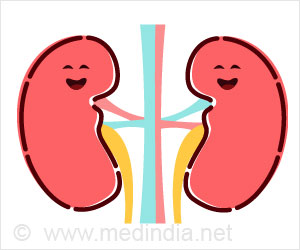IVF is a vital procedure for those struggling with infertility. It involves egg retrieval, fertilization in a lab, and embryo transfer to address various fertility issues.
- IVF assists with various infertility issues, including blocked fallopian tubes and low sperm count
- Age impacts success rates; older individuals may face reduced chances of success
- Healthy lifestyle choices can significantly improve IVF outcomes
World IVF Day: Let the Celebration Begin!
Go to source). In vitro fertilization (IVF) is a transformative medical procedure designed to assist individuals and couples facing infertility in their quest to conceive a child. This advanced technique involves extracting mature eggs from a woman’s ovaries and combining them with sperm in a controlled laboratory environment. The fertilized embryos are then implanted into the uterus, providing a solution to various fertility challenges such as blocked fallopian tubes, low sperm count, endometriosis, or unexplained infertility.
Infertility: A Widespread Concern
Infertility affects millions globally, and India is no exception. The Indian Society of Assisted Reproduction reports that around 27.5 million individuals in India grapple with infertility issues. The rate of primary infertility in the country ranges from 3.9% to 16.8%, highlighting that many individuals and couples face similar struggles. IVF stands out as a versatile treatment option, addressing various causes of infertility such as unexplained issues, damage or blockage of fallopian tubes, endometriosis, male factor infertility, and fertility preservation for those undergoing medical treatments like cancer therapy through egg or sperm freezing.The Role of Age in IVF Success
Age significantly influences IVF outcomes. As women age, their response to fertility medications during ovarian stimulation diminishes, affecting the number of viable eggs produced. Older age also reduces the likelihood of successful embryo implantation and increases the risk of miscarriage. Female fertility notably declines after age 35, with a decrease in both ovarian reserve and egg quality. Moreover, the risk of chromosomal abnormalities in eggs rises with age, potentially leading to genetic disorders and unsuccessful pregnancies. Recent studies have also highlighted premature ovarian aging in women under 35. Men’s age plays a role too, with older men potentially experiencing reduced sperm quality and a higher risk of genetic abnormalities in their offspring.Enhancing IVF Success Through Lifestyle Choices
Adopting a healthy lifestyle can significantly improve the chances of a successful IVF outcome. Prioritizing overall health before and during treatment is essential. This includes maintaining a balanced diet rich in fruits, vegetables, whole grains, lean proteins, and healthy fats, while avoiding alcohol, tobacco, and recreational drugs. Regular exercise, stress management, and adequate sleep also contribute to better fertility outcomes. These lifestyle adjustments help create an optimal environment for IVF success.Essential Medical Assessments
Before commencing IVF, both partners should undergo a comprehensive medical evaluation. This assessment includes blood tests, semen analysis, and ultrasonography to assess overall health, fertility status, and any underlying conditions that could affect IVF success. A fertility specialist will guide you through the IVF process, outline potential risks, and provide tailored success rate information based on your specific situation.Navigating Hormonal Changes During IVF
IVF treatment involves hormonal medications to stimulate the ovaries and enhance egg production. These medications may cause side effects such as mood swings, hot flashes, and bloating. Being aware of these potential changes helps you prepare mentally and physically for the treatment process. Managing expectations and seeking support when needed can make the IVF journey smoother and more manageable.Understanding the IVF Process
Familiarity with the IVF process, including its risks and success rates, is crucial. Knowledge empowers you to make informed decisions and advocate for your needs throughout the treatment. From hormonal stimulation to embryo transfer and the final pregnancy test, understanding each step of the IVF journey helps you feel more prepared and confident.IVF is a complex journey requiring careful preparation and consideration. It encompasses various stages, including hormonal stimulation, egg retrieval, fertilization, and embryo transfer. Each stage presents its own set of challenges and opportunities. Consulting with a fertility specialist provides valuable insights and personalized guidance, helping you navigate the IVF process effectively and approach treatment with confidence.
Reference:
- World IVF Day: Let the Celebration Begin! - (https://pubmed.ncbi.nlm.nih.gov/37400182/)
Source-Medindia















